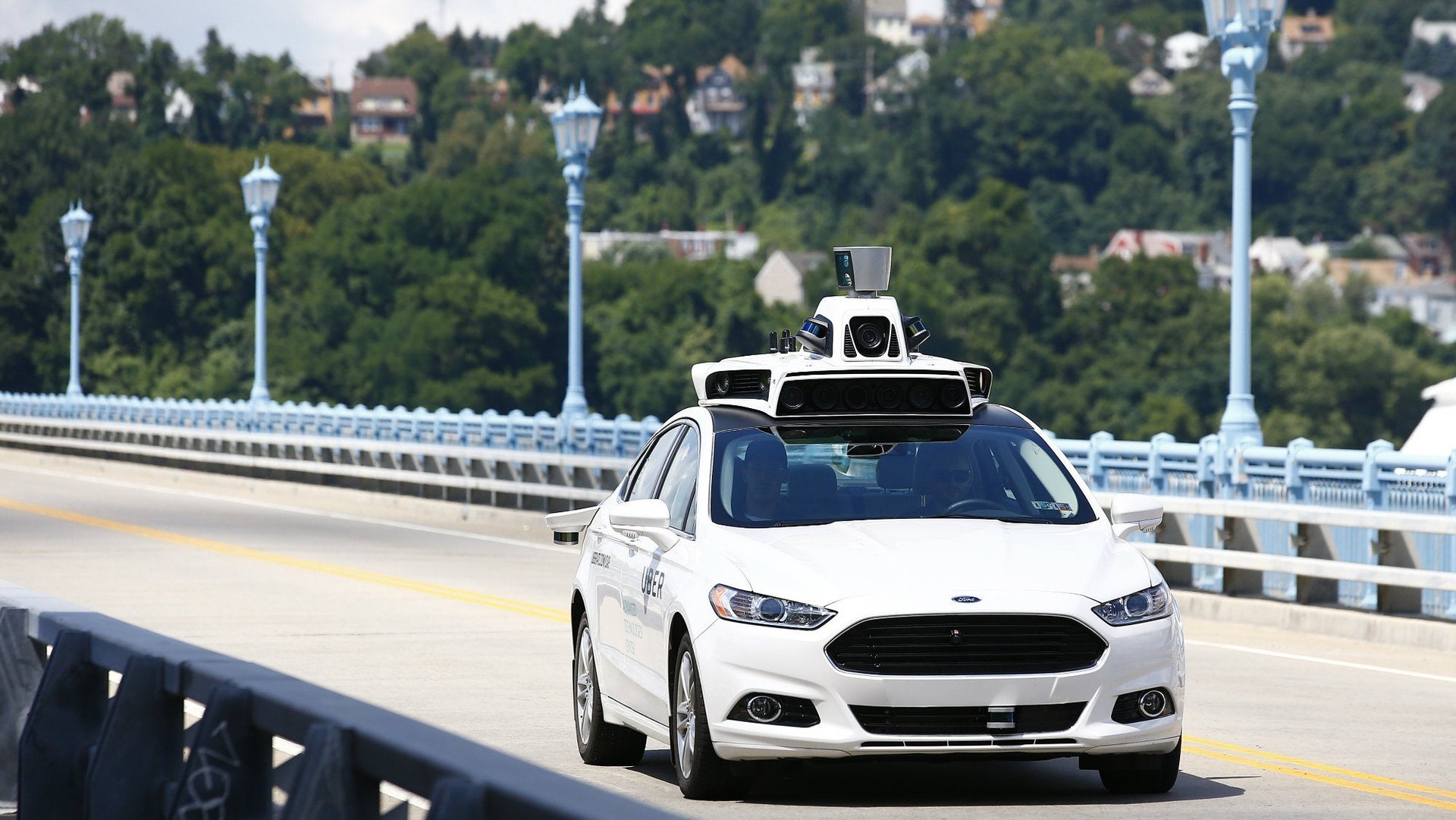People have been worrying for more than a century that self-driving cars will kill us
Self-driving cars are already being tested on the roads in the US, and by some estimates could be widely available in as soon as five years. The closer that reality gets, the more people seem spooked by the idea of machines taking the wheel.


Self-driving cars are already being tested on the roads in the US, and by some estimates could be widely available in as soon as five years. The closer that reality gets, the more people seem spooked by the idea of machines taking the wheel.
A full 78% of respondents told the American Automobile Association (AAA) in a survey this year that they would be afraid to ride in an autonomous vehicle, a slight increase from the previous year’s result. An analytics company’s review of 1 trillion social media posts earlier this year found that a full 50% of the emoji used in discussions of self-driving cars were scared faces.
While it feels like a 21st-century fear, anxiety over self-driving cars has a long history, stretching back more than a century. Just take a look at The Automatic Motorist, a silent film from 1911 highlighted recently by Atlas Obscura.
In the six-minute film by British magician and film director Walter R. Booth, a newlywed couple ill-advisedly embarks on a honeymoon in a car driven by a robot chauffeur.
Things quickly get out of hand. The robot assaults a police officer.
Then it drives crazily on the streets . . .
across the surface of the moon . . .
and even on the rings of Saturn.
“The Automatic Motorist” played on long-simmering anxieties about the possibilities of automated transport. Victorians, for example, worried (paywall) that the unprecedented speeds of railroad travel could send women’s uteruses hurling from their bodies, among other dangers.
In 1896, during the early days of the gas-powered automobile, a contributor to a British scientific journal warned that the vehicles were inherently less safe than the horse-drawn carriages they soon would replace, as a human driver “has not the advantage of the intelligence of the horse in shaping his path.”
New technologies are always accompanied by fears of their potential dangers to morals and physical safety. AsChristopher Bader, a professor of sociology at Chapman University, told the Atlantic in 2015, “People tend to express the highest level of fear for things they’re dependent on but that they don’t have any control over, and that’s almost a perfect definition of technology.”
Of course, surrendering control of administrative tasks to a machine is one thing. Surrendering control of one’s body is another.
Transportation triggers anxieties that are difficult to overcome with rational numbers alone. Airplanes are far safer than cars, yet fearful people cancel plane reservations and take to the road after the rare air disaster occurs.
“It’s a classic reflex—new things threaten our sense of order and control and it lasts briefly until our addiction with convenience takes root. Same with self-driving cars,” Faith Popcorn, a futurist and CEO of the consultancy BrainReserve, wrote in an email to Quartz.
We can take heart that driverless cars won’t text while driving, or get drunk. They promise to be much safer than human-powered rides. If history is any guide, when the next transportation revolution comes along we’ll be as reluctant to give up autonomous cars as we were to take over from horses. But that hasn’t stopped people from fearing driverless cars yet.